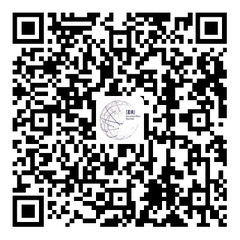Time: 08:30, Oct. 9, 2023
Venue: Room 503, SEIE Building
Content:
Topic 1: AI algorithm based intelligent robot design
Speaker: Zhang Bin
As social challenges such as a declining birthrate and an aging population become increasingly severe, and in response to the shortage of labor resources, the development of intelligent robots has garnered significant attention. It’s evident that the era of intelligent robots with AI technology as its core is on the horizon, where human resources will be gradually replaced and robots will serve vital roles in daily social life. This report revolves around the design and development process of AI algorithm-based intelligent robots. It introduces technologies and applications of environmental recognition and intelligent perception, discusses ideas related to human-computer interaction (HCI) and interaction design for specific service robots, and explores the direction and progress of interdisciplinary research encompassing robotics, intelligent perception, and developmental psychology.
Topic 2: Kanagawa University environment and student fostering and an introduction to 3D spatial information based dynamic environmental mapping
Speaker: Aoki Toya
Kanagawa University, a distinguished private comprehensive university is situated in Yokohama, Kanagawa Japan, adjacent to Tokyo Bay. Established in 1928, it boasts a top-tier scientific research environment and faculty. In this salon, Aoki offers insight into the learning and living environment at Kanagawa University, presenting a student’s perspective. He gives an overview of overseas research conducted in various laboratories, aiming to foster an international outlook among the audience for their future endeavors in studying and working aboard. Moreover, the speaker delves into the realm of 3D spatial information-based dynamic environmental map generation. Environmental perception and map generation, as the basis of autonomous mobile robot navigation, are of great significance to improve navigation accuracy. The integration of 3D spatial information and object recognition results into 2D map enhances the practicality of environmental maps, and renders friendly interaction between robots and the environment.
Organizer:
School of Electronics and Information Engineering
About the speakers:
Zhang Bin, Ph.D., head of the Intelligent Machinery Research Lab in Department of Mechanical Engineering, Faculty of Engineering at Kanagawa University in Japan. His primary fields of research include intelligent robots and autonomous driving. Dr. Zhang has successful overseen 4 projects founded by Japanese zaibatsu and actively participated in 3 Japanese government funded projects. With a remarkable academic portfolio, he has authored and co-authored over 110 papers in both English and Japanese, showcasing his extensive contribution to the field.
Aoki Toya: Master of Graduate School of Engineering, Kanagawa University, and bachelor of Department of Mechanical Engineering from the Faculty of Engineering Kanagawa University. Aoki’s primary research focus is environmental map generation for mobile machines.






